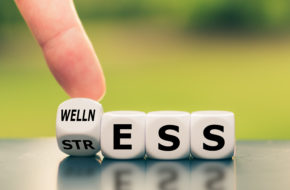Adolescence is a highly formative time. This crucial period involves developing important social and emotional habits for mental wellness. Adopting sleeping patterns, coping mechanisms, problem-solving and interpersonal skills are just a few of the habits and skills developed during adolescence.
Various things influence mental health in youth. The more adversity an adolescent is exposed to, the more significant the potential impact on their physical and psychological health. The World Health Organization (WHO) explains that adolescents with mental health conditions are much more vulnerable to social exclusion, discrimination, stigma, educational difficulties, risk-taking behaviors, poor physical health and human rights violations.
ADHD, anxiety, behavior problems and depression are the most commonly diagnosed mental disorders among youth; sometimes, they occur together. Other common diagnoses include substance-use disorders and eating disorders.
Important considerations, per the CDC:
- Among children living below 100% of the federal poverty level, more than 1-in-5 had a mental, behavioral or developmental disorder.
- Age and poverty level affected the likelihood of children receiving treatment for anxiety, depression or behavior problems.
- Children who were discriminated against based on race or ethnicity had higher percentages of one or more physical health conditions and one or more mental health conditions.
Consider this… before the Covid-19 pandemic, suicide was the second-leading cause of death among individuals aged 10-34.
Adolescents
have a lot on their minds these days. The pressures that teens face can feel
overwhelming. Here are some of the main contributors to the ongoing rise in
concern for youth mental health:
- Racial disparities
- Socio-economic disparities
- Bullying
- Alcohol/Drug use
- Poverty
- Teen pregnancy
- Gangs
- Violence
- Academics
- Extracurricular activities
- Abuse
- LGBTQ+ considerations
Being a youth in today’s society is by no means easy. There is something equally as tricky, though…. Parenting. The mental health of children is often enmeshed in that of their parents. Caregivers need support that can, in turn, help them support their children. Parental burnout is real.
What is parental burnout? Similar to a match that is no longer lit, parental burnout can be defined as having no energy left to give. Parental burnout is the depletion of one’s resources.
What causes burnout?
- Trying to be perfect – there is no such thing as a perfect parent!
- Financial struggles
- Single parenting
- Too many activities
- Hectic work schedule
- Lack of support
What are some ways to avoid burnout before it happens?
- Take time for yourself.
- Ask for help.
- Enlist a partner – someone who can hold you accountable!
- Rearrange schedules.
- Consistent self-care – this doesn’t have to be lavish – but it has to be specific to you – it has to be something that will help you refill your cup.
- Grow your empathy.
- Allow yourself to feel all the feelings! – the good, the bad, and the ugly!
- Don’t take your child’s behavior personally.
What are the symptoms
of burnout?
- Depression
- Irritability
- Lack of sleep
- Anxiety
- Crying spells
- Lack of clear thoughts (mental clutter)
- Job burnout (for a working parent)
- Emotional distancing
- Parental ineffectiveness
- Escape ideation
What do we offer at Diakon to help in this area?
We offer numerous services that can be beneficial for families and individuals dealing with the stress of life on life’s terms.
Diakon Family Life Services specializes in the treatment of mental health and substance use disorders. Treatment can include individual therapy, family therapy, group therapy, psycho-education and more. With expertise in areas of adolescent substance use, adolescent mental health, trauma, family systems and relationships, our team of clinicians brings an unmeasurable amount of training and experience to the field of behavioral health.
Diakon Family Life Services boasts varying levels of care and treatment to best meet the needs of families and individuals in our care:
- Family-Based Mental Health Services (FBMHS)
- Specialized In-Home Treatment for youth sexual behavior (SPIN)
- Outpatient Mental Health Therapy
- Outpatient Substance Abuse Therapy
- Psychiatry services and medication management for children, adolescents, and adults
- Adolescent Psychological Evaluations for a higher level of care
- Group Therapy
- Medication Assisted Treatment (MAT) for adults
Diakon also offers free parenting classes using the Triple P curriculum. The Triple P – Positive Parenting Program ® is a parenting and family support system designed to prevent – as well as treat – behavioral and emotional problems in children and teenagers. It aims to prevent problems in the family, school, and community before they arise and to create family environments that encourage children to realize their potential.
~ Author: Lindsay Seeger, Clinical Director, Diakon Family Life Services, Capital Region Outpatient Services




